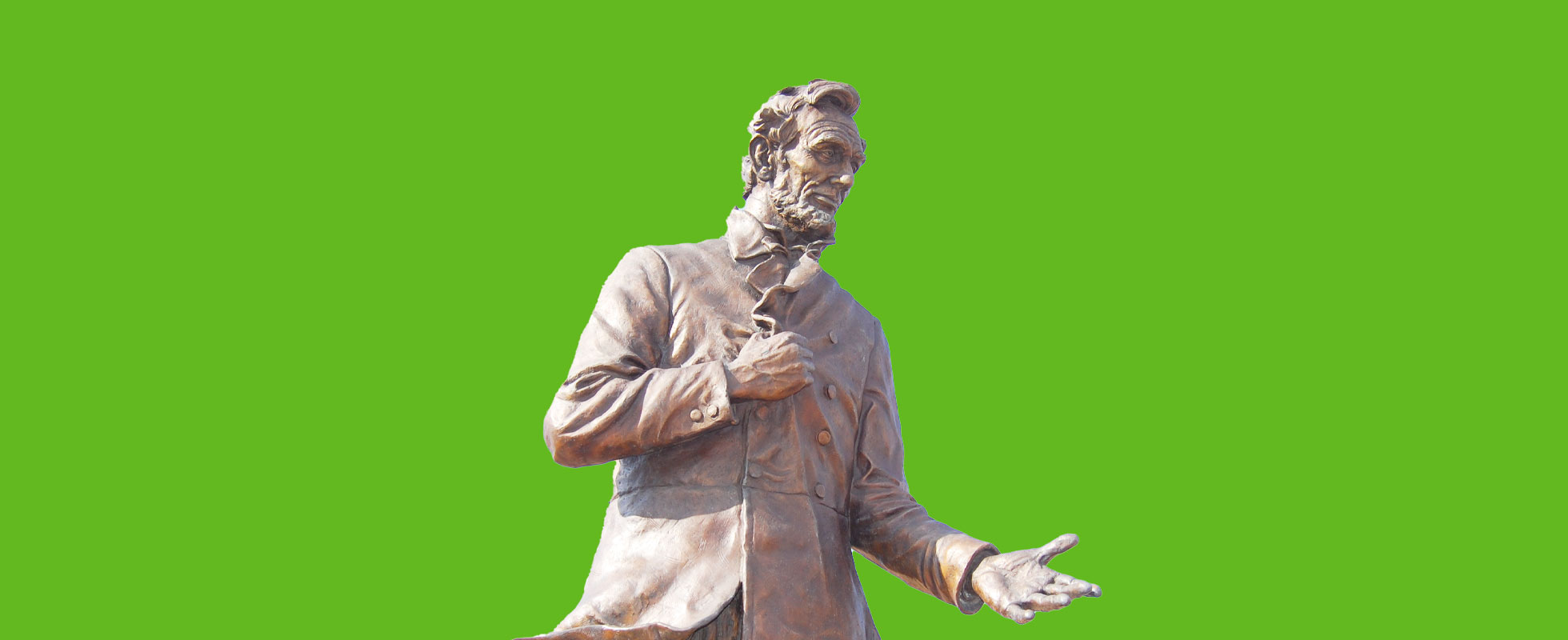Despite his humble beginnings as a self-educated lawyer, Abraham Lincoln is remembered as one of the most influential Presidents in U.S. history. As a lawyer, a legislator, and the 16th President of the United States, Lincoln left an indelible mark on the nation.
But his legacy extends beyond his political roles. He was not only a skilled writer, but also a gifted orator, recognized for his ability to use the power of words to influence and inspire.
In honor of his exceptional skills, here are eight memorable quotes from some of Lincoln’s most famous speeches that highlight the wisdom and eloquence that helped define his pivotal role in history.
Lyceum Address (January 27, 1838)
Let every American, every lover of liberty, every well wisher to his posterity, swear by the blood of the Revolution, never to violate in the least particular, the laws of the country; and never to tolerate their violation by others.
As pro-slavery mob violence grew, practicing lawyer and Illinois Legislature Whig representative Abraham Lincoln, then just 29 years old, gave his first major speech at the Young Men’s Lyceum of Springfield, Illinois.
The topic of Lincoln’s speech was “the perpetuation of our political institutions.” Today, it offers historians insight into the future President’s beliefs about the role and significance of the U.S. government and the potential threats to its survival.
House Divided Speech (June 16, 1858)
“A house divided against itself cannot stand.” I believe this government cannot endure, permanently half slave and half free. I do not expect the Union to be dissolved — I do not expect the house to fall — but I do expect it will cease to be divided. It will become all one thing, or all the other.
This historic speech was delivered in the Hall of Representatives a few hours after Lincoln accepted the nomination for the Illinois Republican U.S. Senate.
It was a radical speech that smartly referenced a Bible verse (Mark 3:25) to highlight the threat of a divided country. Although Lincoln ultimately lost to his opponent, incumbent Stephen Douglas, his uncompromising courage in drawing attention to the pressing issues facing the nation eventually set him apart as a viable presidential candidate.
Cooper Union Address (February 27, 1860)
Neither let us be slandered from our duty by false accusations against us, nor frightened from it by menaces of destruction to the Government nor of dungeons to ourselves. Let us have faith that right makes might, and in that faith, let us, to the end, dare to do our duty as we understand it.
Fewer than three months before the Republican State Convention, Lincoln presented the well-researched speech that historians believe played a pivotal role in his securing the Republican nomination for President and, eventually, the presidency itself.
Speaking to an audience of 1,500 at Cooper Union, the then-newly constructed private college in New York City, Lincoln boldly expressed his views on slavery and insisted that Congress had the moral duty to expel the practice from the United States.
Address at Independence Hall (February 22, 1861)
I have never had a feeling politically that did not spring from the sentiments embodied in the Declaration of Independence.
In February 1861, President-elect Lincoln made several train stops along his inaugural journey from Springfield to Washington, D.C. One of his most memorable speeches was given on February 22 (George Washington’s birthday) at Independence Hall in Philadelphia, the site where the Declaration of Independence had been signed.
First Inaugural Address (March 4, 1861)
We are not enemies, but friends. We must not be enemies. Though passion may have strained, it must not break our bonds of affection. The mystic chords of memory, stretching from every battlefield, and patriot grave, to every living heart and hearth-stone, all over this broad land, will yet swell the chorus of the Union, when again touched, as surely they will be, by the better angels of our nature.
Written in his hometown of Springfield, Illinois, shortly after he was elected President, Lincoln referenced various other historical speeches to pen this inaugural address. Once he arrived in Washington, D.C., he was encouraged by Secretary of State William H. Seward to soften the speech’s tone, resulting in this poignant conclusion.
Gettysburg Address (November 19, 1863)
Four score and seven years ago our fathers brought forth upon this continent a new nation, conceived in liberty, and dedicated to the proposition that all men are created equal.
Edward Everett, the former president of Harvard, was the featured speaker at the dedication ceremony for the Gettysburg National Cemetery, located at the site of one of the Civil War’s bloodiest battles.
A late addition to the ceremony, President Lincoln prepared a very brief speech about the significance of the war. Lasting just two minutes after Everett’s whopping two-hour speech, Lincoln’s remarks that day are still among the most memorable and most quoted in American history.
Second Inaugural Address (March 4, 1865)
With malice toward none; with charity for all; with firmness in the right, as God gives us to see the right, let us strive on to finish the work we are in; to bind up the nation’s wounds; to care for him who shall have borne the battle, and for his widow, and his orphan — to do all which may achieve and cherish a just and lasting peace, among ourselves, and with all nations.
Delivered little more than a month before Lincoln’s assassination, Lincoln’s second inaugural address is also one of the shortest in U.S. history at just 700 words. Despite its brevity, it’s still widely considered one of the best speeches ever delivered.
Last Public Address (April 11, 1865)
We meet this evening not in sorrow, but in gladness of heart.
Two days after Confederate General Robert E. Lee’s surrender at Appomattox marked the beginning of the end of the Civil War, President Lincoln addressed a crowd from a White House window, sharing his reflections on Reconstruction and reconciliation.
Among those present at the President’s final public address was Confederate activist John Wilkes Booth. Just four days later, in the early morning hours of April 15, 1865, Lincoln would succumb to the gunshot wound inflicted by Booth the night before. But Abraham Lincoln’s legacy, as evidenced by this quote and the ones above, continues to extend far beyond his tragic death.
Featured image credit: SmileLikeUMeanIt/ iStock
















